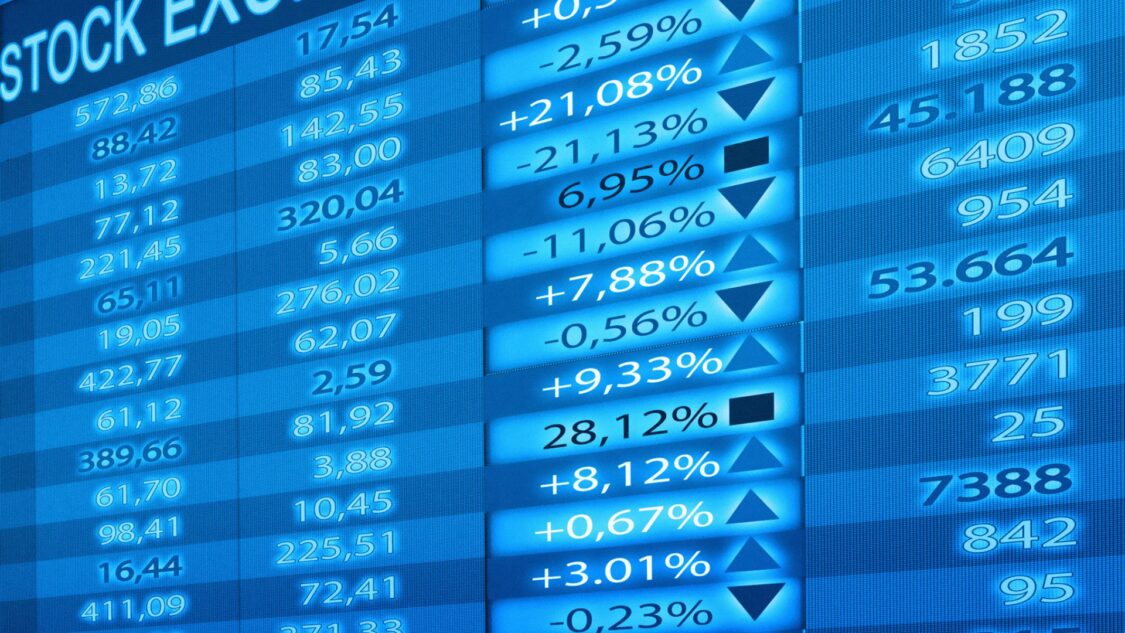Although stocks are significant in finance and investing, the concept surrounding it can be confusing and complex to newcomers. So, what is a stock? Simply put, it represents a company’s ownership and allows investors to participate in its success and growth process. Understanding the concept behind it and making knowledgeable decisions is essential for investors to accumulate wealth and reach their financial goals.
Let’s explore the key characteristics of and provide valuable insights on making informed decisions when navigating the stock market. You can successfully invest in and maximize your potential profits by using the guidance provided in this article.

What are stocks?
The market has a world of itself, and explaining What is a stock market in just a few sentences will not be enough. The market is where the sales and purchases take place. It’s the marketplace between individual investors and companies where the shares of certain companies are bought and put up for sale.
As we explained above, when buying, the investor gains a small amount of ownership from a company. When browsing the market, most of the stocks for sale and the trades are between individual investors and not the company itself. For example, if somebody is interested in buying shares of Apple, it is most likely not the company selling. Instead, an investor is no longer interested in that specific share and has decided to sell it onwards. The investor that makes the purchase then becomes an investor in the underlying company listed.
Who decides the prices?
It all goes according to supply and demand. There is a maximum price people will buy and a minimum price someone else is ready to sell shares of the stock for. This is what we call bid and ask prices. It is very comparable to an auction. Bidding is ongoing with buyers regarding stocks that investors are willing to sell. The more the demand, the faster the investors will need to buy. This hikes the price up. The price may decrease, though, if more investors are selling than are buying.

How can we ensure there are always buyers and sellers?
Market makers are the middle man between buyers and sellers. This guarantees that there is always a market for stocks on an exchange and that investors can buy and sell them during market hours. Market makers are the ones that buy and hold the shares of the market. They also put the listings out for shares. The bid is the highest offer to buy shares listed by a market maker at any given time, and the ask is the lowest proposed selling price. Spread is the difference between the two.
How to invest?
The process of investing in this market is pretty straightforward. The first step is to make a well-informed decision about the type of investment account you wish to open. Next, you open a brokerage account. When looking at brokerages, consider their fees, investment options, and any extra fees required. Do your research thoroughly and choose the best brokerage for yourself.
Once selecting a brokerage, you can already make a deposit. Additionally, you can program automated recurring transfers to do the work for you. Once you have an open account, you can choose your investments, whether individual, index funds, mutual funds, etc. Keep in mind a diversified portfolio is the safest option. Lastly, you are ready to purchase your investment by putting in how many shares you want to buy and completing the transaction.
Stock Market vs. Exchange
Even though people frequently confuse these two terms, they are not the same. Let’s look at it this way. The stock market is the market as a whole. Included in the market are several exchanges. Some examples of exchanges are Nasdaq and the New York Stock Exchange.

What kind of stocks are there?
Public Vs. Private: Publicly traded stocks are shares in well-known corporations that trade on exchanges like the New York Exchange and the Nasdaq market. Private markets need less regulation than the traditional public market. This market is allowed mainly for expert and knowledgeable investors.
Common Vs. Preferred: The majority of investors own a publicly-traded common stock. While these provide voting rights, dividends, and the potential for price gain, some investors prefer the other route, known as preferred stocks. Preferred shareholders are given the right to vote in company decisions and receive the dividend payments before common shareholders.
In addition, they have first dibs on the assets in the case of bankruptcy or liquidation. Common shareholders have a better chance of making a profit than preferred shareholders. However, being at the lowest position of the capital stack, they are exposed to the risk of financial losses. By now, you should better understand this market, how the prices are decided, what kinds of stocks exist, etc.
What are the main advantages and disadvantages of investing in stocks?
Investing in stocks has its general advantages and disadvantages. They have the potential for long-term growth and capital appreciation, one of its key benefits. They enable investors to diversify their holdings and share in the development of successful businesses. On the other hand, investing comes with a certain level of uncertainty and danger. The value is subject to change, which increases the chance of losing money. Investors should evaluate their risk tolerance thoughtfully and perform comprehensive research before committing to any investment choices.
The likelihood of receiving dividends is another benefit of investing. Some companies distribute some of their profits to shareholders through dividends, which can easily provide a steady income stream. An additional advantage lies in its liquidity, which permits the ease of purchase and sale through the stock market.
Investing comes with the disadvantages of market unpredictability and the potential for a complete loss of invested capital. Investors must maintain up-to-date knowledge, consistently oversee their investments, and make thought-through decisions per their financial objectives and level of risk acceptance. Individuals with the proper education can confidently navigate the market and make educated investment decisions.
What Affects Share Prices on the Stock Market?
Several factors can affect share prices in the stock market. These factors are crucial to be familiar with to make informed investment decisions. A company’s financial performance and success play a significant role in determining its share price. Share prices can rise when there is high earnings growth, strong revenue production, and effective management, whereas share prices can fall when there is weak performance.
Positive economic indicators often correlate with rising share prices, while economic downturns or uncertainty can lead to market declines. Shifts in technology, consumer preferences, regulatory environment, or market demand can impact the wealth of companies throughout a particular industry. Investor sentiment and market psychology can greatly influence share prices. Investor sentiment and market psychology can significantly influence share prices’ fluctuation. Numerous factors, including investor confidence, market speculation, and fear, can cause volatility and modify stocks’ supply and demand dynamics.
News, announcements, and events connected to companies, industries, or the overall market can trigger significant volatility in share prices. Additionally, the worth of a company concerning its profits, resources, and competitors within the same field can influence the prices. Various factors, such as the company’s price-to-earnings ratio and price-to-book ratio, along with the market’s sentiment on the company’s potential for growth, can considerably influence its share price and overall valuation. Lastly, supply and demand can highly influence share prices. The price will rise if a stock has higher demand than the available supply. Conversely, the price will fall if there is more supply than demand.
What are some misconceptions or myths about stocks?
Several common misconceptions can mislead investors. One misconception is that stocks are too risky. While they carry risks, it’s essential to understand that not all types are highly volatile or risky investments. Investors may reduce possible drawbacks by minimizing risks through diversification and using a long-term investment strategy. Some people believe investing is akin to gambling. Unlike gambling, stock investing is a calculated and thought-through approach based on the information at hand.
The idea that timing the market can result in negative investment results is a common misconception. Attempting to anticipate price fluctuations over the short term can take time and effort. It is advisable to prioritize a company’s fundamentals and engage in long-term investment, as this strategy often generates higher outcomes.
Closing Thoughts – What is a stock?
In conclusion, understanding what a stock is forms the cornerstone of successful investing in the financial markets. It gives investors a share in a company’s success and represents ownership.
By investing in stocks, individuals can participate in the growth and profitability of companies across various industries. However, investing in this requires careful analysis, research, and informed decision-making. Before making investment decisions, assessing factors such as company fundamentals, market trends, and risk tolerance is critical. Investors may easily navigate the world of stocks and work toward their financial goals if they thoroughly understand what a stock is and the information necessary to make informed choices. Research, constant education, and a long-term outlook are essential for a successful portfolio.
For more news updates, visit our homepage now and see our latest news article. Want to learn more about trading? Visit our education page now and learn for FREE!
Stocks Vs. Cryptocurrency(Opens in a new browser tab)

